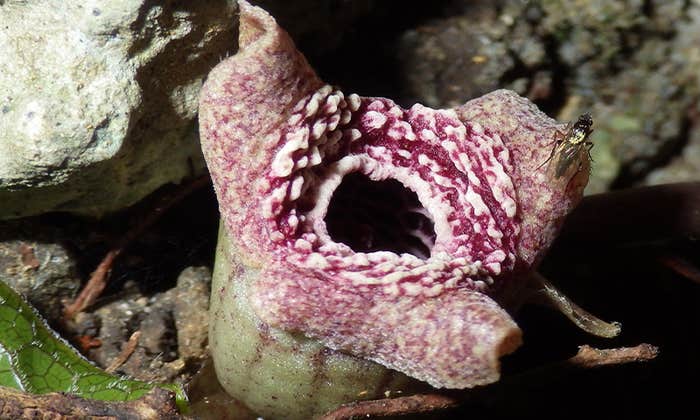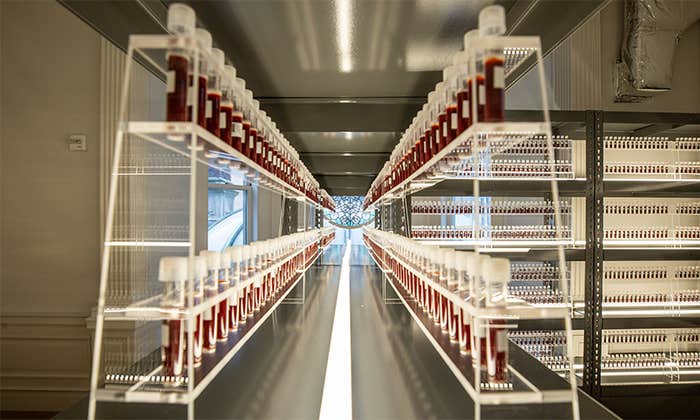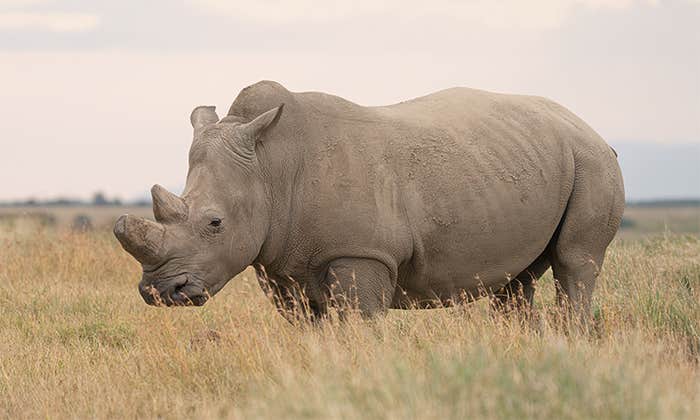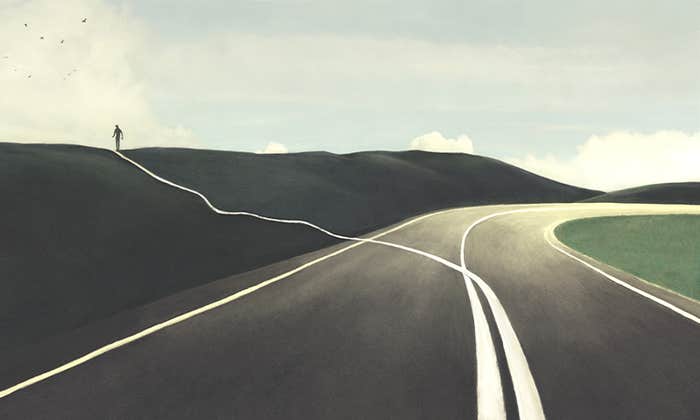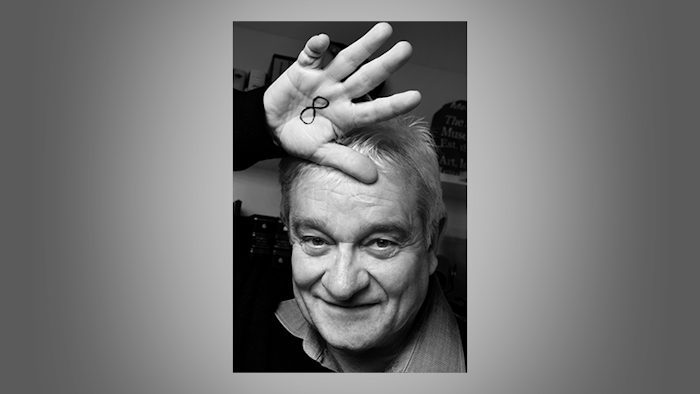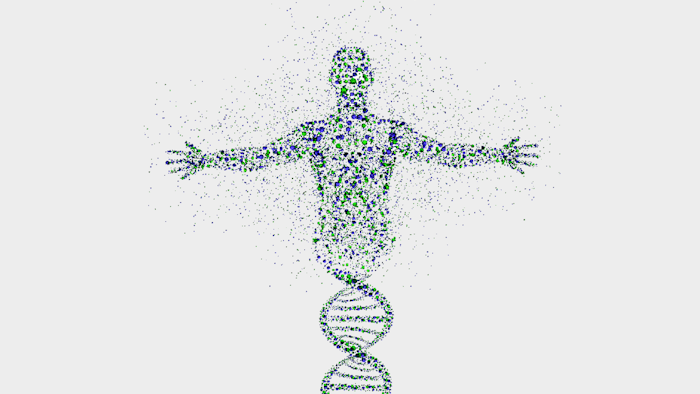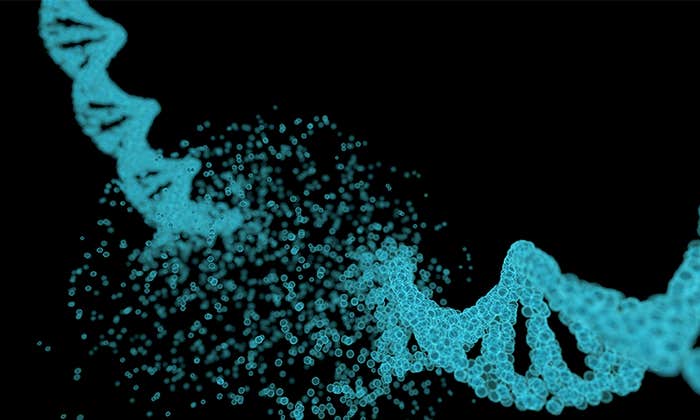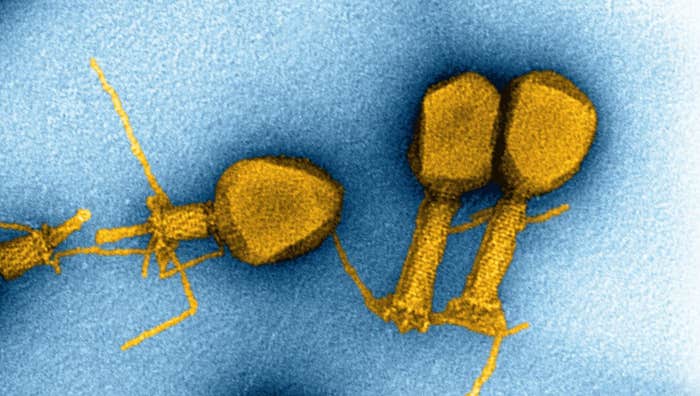Genetics
138 articles-
We’ve Got the Beat—in Our Genes
How much we enjoy music, and in what ways, is heritable -
The Genetics of Putrid-Smelling Flowers
Some plants lure pollinators with the stench of decay using a gene related to one that fights odor in human breath -
Reclaiming Samples of Ourselves
Artist Heather Dewey-Hagborg explores the ethics of human specimen collections in Is a Biobank a Home? -
The Last of Their Kind
Are efforts to resurrect the northern white rhino more technological hubris than genuine conservation? -
Why Elephants Rarely Get Cancer
What snakes, ferrets, and elephants are revealing about cancer resistance -
How Neanderthals Kept Our Ancestors Warm
New DNA studies reveal more benefits from our hominin friends -
How Life Really Works
Just as I uncovered a new way to understand life, I got news about my own. -
Destroying an Idea Is a Path to Progress
Geneticist Paul Nurse on his Nobel Prize-winning discovery, the importance of failure, and a revelation about his own origins. -
The Case Against the Selfish Gene
Richard Dawkins’ hypothesis buries a crucial part of life’s story. -
A Universal Cancer Treatment?
A medicine that disrupts the DNA replication of cancer cells may be within reach.
-

After 100 Years of Research, Autism Remains a Puzzle
One geneticist is determined to piece together the causes.
-
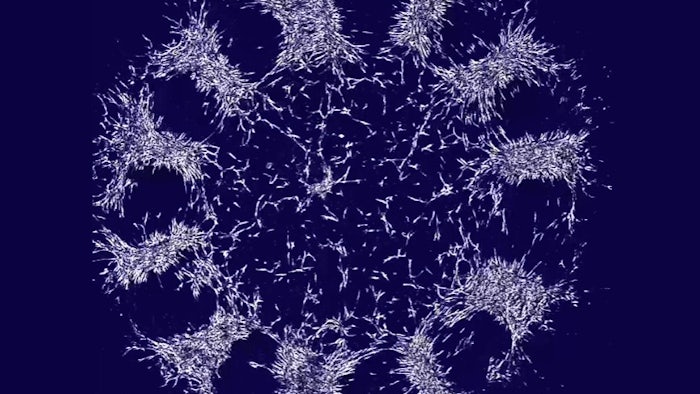
Embryo Cells Set Patterns for Growth by Pushing and Pulling
Patterns that guide the development of feathers and other features can be set by mechanical forces in the embryo, not just by gradients of chemicals.
-
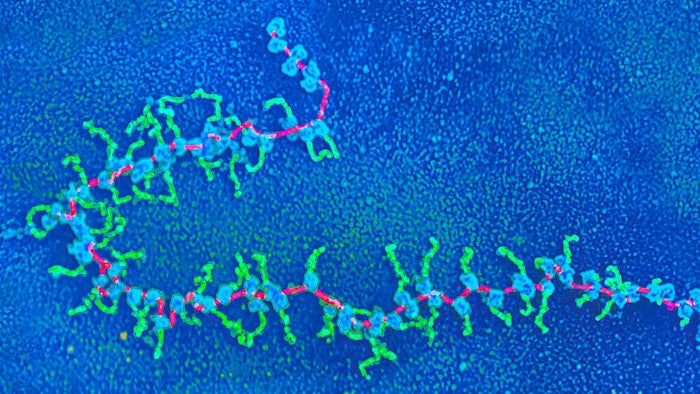
Life’s First Peptides May Have Grown on RNA Strands
RNA and peptides coevolving in the primordial world might have jointly served as a precursor to the modern ribosome.
-

Plants Fight for Their Lives
As arable land disappears, a genetic tweak might secure the world’s food supply.
-

Reading Genomes: The Key to Life and to Thwarting Death
Genome sequencing machines are essential to preventing viral outbreaks, but funding is key.
-
The Rise of RNA Therapeutics
DNA mutations are hard to fix. Scientists are trying another approach. -
The Hidden Link Between “Genetic Nurture” and Educational Achievement
The phrase “Look down your nose” comes from a time when aristocrats were taller than commoners due to their superior nutrition. European elites would literally look down on their inferiors. So it shouldn’t be hard to imagine the shock 19th-century aristocrats experienced, across the Atlantic, encountering well-fed American laborers, artisans, and farmers, who would look […] -
The Complex Truth About ‘Junk DNA’
Genomes hold immense quantities of noncoding DNA. Some of it is essential for life, some seems useless, and some has its own agenda. -
DNA Has Four Bases. Some Viruses Swap in a Fifth.
The DNA of some viruses doesn’t use the same four nucleotide bases found in all other life. New work shows how this exception is possible and hints that it could be more common than we think. -
Data Crunchers to the Rescue
Genetic diseases that puzzle lab scientists are being solved by quantitative biologists.
















